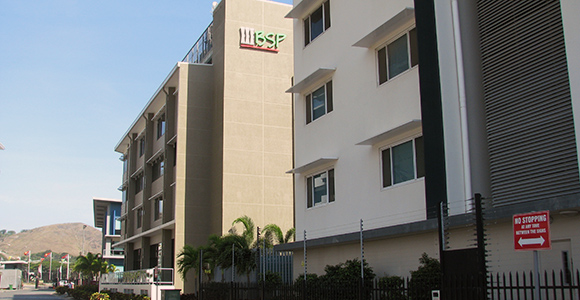REGULATIONS set by the current operating commercial banks in the country still remain as a major constraint to many of the local people operating in the informal sector that want to do deposit at the banks.
Few members of Parliament including the Governor for East Sepik, Allan Bird has raised series of questions to the treasurer and the government on how best the issues affecting the local people can be addressed.
Governor Bird questioned as to why commercial banks only allow for a certain amount of cash to be deposited in the banks.
He made this remark in respect to the banks policies and regulations relating to money laundering.
Bird added that almost 80% of the people who wanted to do deposits of cash in the banks are the locals who mostly operate in the informal sector.
“Most of the people for example in my province who operate on vanilla could not deposit their money because the bank could not allow.
“Why are the banks penalizing our small people who are trying their best particularly in the last two years of COVID-19 where people are really struggling to put food on the table,” the governor asked.
The Treasurer and Member for Kavieng, Ian Ling-Stuckey who is also not happy with the command the Bank of PNG including other Commercial Banks are taking.
Minister Ling-Stuckey in his series of meetings with the institution has noted that each of the institutions are making their own regulations which is one of the problems.
“The bank of Papua New Guinea, the commercial banks, the departments of finance are making up their own regulations.
“The anti-money laundering and the counter-terrorism Act and because of these laws, they are now forced to answer a number of questions,” the treasurer said.
He said if the bank did put in place some of the regulations allowing any amount of cash and cheque deposits, they could be subjected to heavy penalties and even lose their licenses.
“BPNG when asked on what legislation they are basing their requirements did not give a very clear answer, the same with other commercial banks and even with the Department of Finance.
“Since the enactment of this law back in 2015, there hasn’t been much oversight on what each of these three groups is doing, as a result we have a huge growth in regulations which we find it to be a nightmare to cash a simple cheque.
The Minister has assured the need of full cooperation of the Bank of PNG, the commercial banks (BSP and Kina) allowing people mostly in the informal sector to deposit their money.

He said If they (banks) do not make decisions in the near future to ensure that our guidelines set to them are followed, the government may be forced to make decisions for them.
However, the banking and finance sector are also faced with the dilemma with only three commercial banks in active operation , one of which include Westpac who is currently in the process of selling its business to the Kina Security Limited.
If the acquisition is successful, the country will only have two of the commercial banks operating which will lead to a decrease in competition and an increase demand complying with banks regulations.
Member for Yangoru-Sausia, Richard Maru in Parliament on August 11 questioned the government on its plans on improving the banking and financial sector by making way for local financial companies for instance TISA to establish a commercial bank owned and served by the citizens of Papua New Guinea.
Prime Minister James Marape in his response has assured the people of PNG that the National Development Bank (NDB) which is owned by the government is set to fill in the vacuum if the Westpac bank remained with the decision to sell its business to Kina Security.
He also encouraged other financial institutions like TISA to move into the space of picking up a banking license in compliance with the requirements of Central Bank.
Central Bank has also been informed by the government to allow for local participants in the financial sector to come in and pick up third license, fourth license and for competition to exist in the country, if the foreign banks want to leave PNG.

